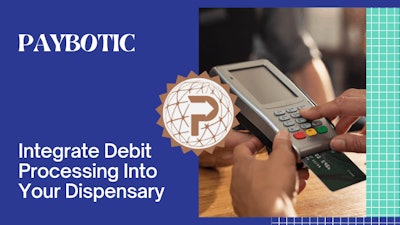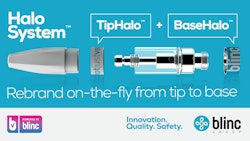
One major point of tension for cannabis retailers is the point-of-sale transaction. Because of the federally illegal status of many of the products being sold in-store, cash has ruled.
But cash isn’t the most convenient thing in the 21st-century digital-forward commercial landscape. Dispensaries have utilized a wide array of workarounds and legitimate solutions to this problem over the years, but banking nonetheless remains murky territory for retailers interested in streamlining the consumer experience.
Paybotic was founded in 2012 when Max Miller, President, was a student at Boston College. In November of that year, Colorado and Washington voters passed adult-use legalization measures—the first in the country—and sales would begin in early 2014. Since then, another 16 states have passed some form of taxed-and-regulated adult-use cannabis legislation (though not all are implemented as of now), and the pool of enterprising business owners in need of financial services has exploded.
In those past nine years, Paybotic has taken on more than 900 retailers nationwide, from small, one-location dispensaries to multi-location cannabis retail chains. The company provides a suite of services, including card processing, ACH processing, banking and cash advances specialized for Cannabis businesses. And as far as that critical point-of-sale transaction, the company’s card processing allows business owners to offer their consumers a way to pay for their purchases without digging around in their wallets for cash.
“We help to enable these businesses—cannabis dispensaries—to accept cards, like any other business, in a compliant, efficient and cost-effective manner,” Miller said. “There is a lot of financial institutions that refuse to work with the cannabis businesses because of its federal status, being illegal under federal law. Whether you purchase with cash, credit, sticks or stones, the purchase of cannabis is illegal—regardless that it's been happening legally in many states for several years. That is the big contention.”
Even if the signature piece of legislation, the SAFE Banking Act, gets through Congress and picks up the President’s signature, compliance hurdles will remain, and FinCEN guidance will continue to place guardrails along that relationship between banks and cannabis businesses. Traditional financial services will take time to adapt to the special circumstances of the still strictly-regulated cannabis businesses. In the meantime, existing cannabis financial solutions will start to transition to a more traditional solution.
“Our mission is to enable these businesses to transact with their customers and patients, so people can get the products that they need securely, safely,” Miller said. “Transactions are convenient and familiar, like at any other business, because that's how it should be.”
In the interest of matching that familiar consumer experience, Paybotic has developed its own debit processing that will fit into a dispensary current point-of-sale software and the company’s financial institution—if a relationship is in place.
“The solution we have enables these businesses to accept cards at the counter. Consumers can use any card with a PIN number,” Miller said. “If they only bring $20 into the store, they're able to spend the money from their checking account. They're not just limited to the cash in their pocket. … Simply put, when a business can accept cards, they can accept more money.”
Companies like Paybotic can also help cannabis businesses connect with cannabis-friendly banks in their own state markets.
Most of the time, whether a bank is “cannabis-friendly” is picked up via word-of-mouth networking. It’s not a heavily advertised segment of the financial world, as the federal compliance pressures are still in place for banks who may be willing to wade into this territory.
Once that bank account is set up, dispensary businesses may begin accepting card transactions with debit processing. When a customer processes a transaction at the check-out counter or with the delivery driver, the funds will be deposited into the merchant’s bank account within 24 to 48 hours.
On the customer’s side of the transaction, everything feels similar to a typical card transaction. This is a significant part of the overarching “normalization” conversation happening in the cannabis space.
And for the dispensary owner, card transactions turn into cash-in-hand very quickly and there is no transaction cost. “They need their money as soon as possible to continue operating the business,” Miller said. “So, we try and make our onboarding process as similar to a convenience store signing up for card processing as possible.”


























